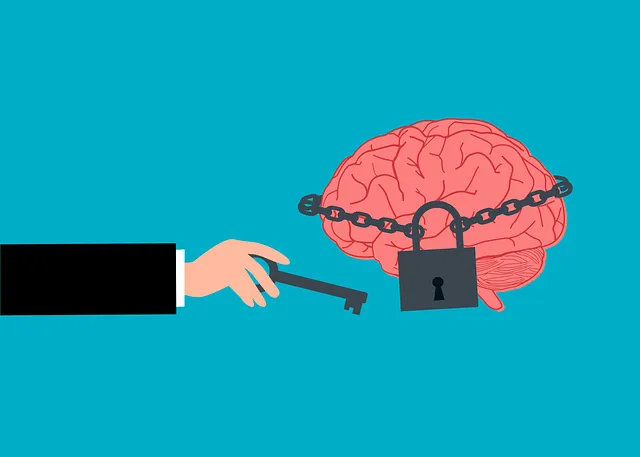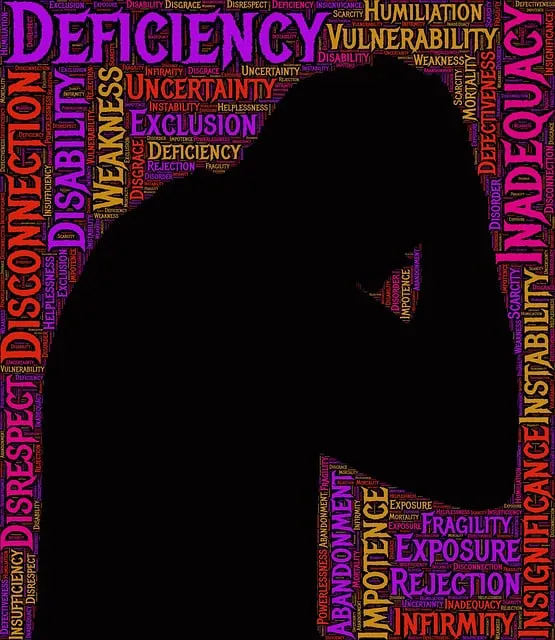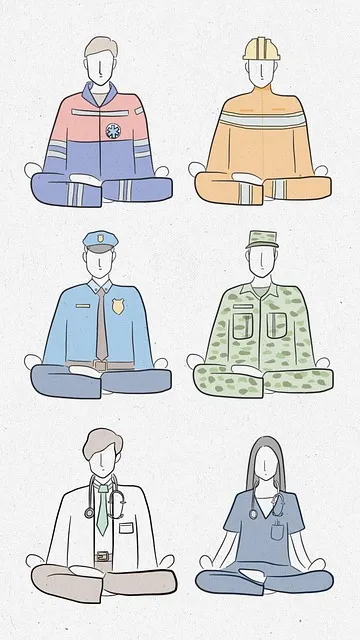Longmont's Kaiser, known for its comprehensive healthcare, integrates Resilience, Flexibility, and Mastery (RFM) exercises into mental health programs. This approach goes beyond traditional therapy by empowering individuals with self-coping mechanisms, fostering open dialogue, and raising mental health awareness through initiatives like the Mental Wellness Podcast Series. By focusing on resilience building and RFM analysis, Kaiser enhances emotional regulation and self-efficacy, while community programs like journaling prompts help residents navigate life's challenges and maintain mental wellness.
In today’s fast-paced world, resilience is key to navigating life’s challenges. This article explores RFM (Resilience, Flexibility, and Mastery), a powerful framework for building mental fortitude. We delve into how resilience-building exercises impact well-being, highlighting Longmont’s innovative approach—a community leveraging RFM principles, even within Kaiser’s mental health services. Additionally, we address practical strategies for implementing RFM in diverse settings, offering valuable insights for those seeking to enhance resilience and promote thriving communities.
- Understanding RFM and its Role in Mental Health Support
- The Impact of Resilience-Building Exercises
- Implementing RFM in Community Settings: Longmont's Example
- Overcoming Challenges: Strategies for Effective Service Delivery
Understanding RFM and its Role in Mental Health Support

In the realm of mental health support, RFM (Resilience, Flexibility, and Mastery) exercises have emerged as potent tools for enhancing individual well-being. Longmont’s Kaiser, known for its comprehensive healthcare services, incorporates RFM into its programs, underscoring the growing recognition of these practices. Resilience, in particular, equips individuals with the ability to navigate life’s challenges, fostering mental health awareness and promoting overall resilience.
The implementation of RFM goes beyond traditional therapy models, focusing on empowering individuals to build their own coping mechanisms. This community outreach program implementation encourages a proactive approach to mental wellness, mirroring the spirit of Longmont’s Kaiser mental health services. Furthermore, initiatives like the Mental Wellness Podcast Series Production can augment these efforts by disseminating knowledge and sharing personal narratives, thereby fostering an environment of open dialogue around mental health awareness.
The Impact of Resilience-Building Exercises

Resilience-building exercises have a profound impact on individuals’ mental well-being and overall health. These practices, often incorporated into therapeutic routines, empower people to cope with stress, anxiety, and adversity. Longmont’s Kaiser, known for its comprehensive healthcare services, includes mental health support as part of their offerings, ensuring that patients have access to these valuable tools. By engaging in compassion cultivation practices and other resilience-fostering activities, individuals can enhance their ability to navigate challenging situations, improve emotional regulation, and build a stronger sense of self-efficacy.
This approach is especially relevant for mental health professionals who, through dedicated training like Cultural Competency Training and Risk Management Planning, learn to integrate these exercises into their practice. Such training enables healthcare providers to offer more holistic care, fostering not only resilience in their clients but also cultivating a culture of compassion within the healthcare setting. This dual benefit underscores the significance of resilience-building exercises in both personal growth and professional development, particularly for those navigating complex mental health issues in today’s fast-paced world.
Implementing RFM in Community Settings: Longmont's Example

In community settings, Implementing RFM (Resilience, Flexibility, and Mastery) principles can significantly enhance mental wellness. A notable example is Longmont, a city that has incorporated innovative programs to support its residents’ mental health. Longmont does Kaiser have mental health services? Yes, they offer comprehensive care, but the city goes beyond traditional therapy by integrating RFM into everyday life. This approach includes simple yet powerful exercises like journaling prompts designed to promote mental wellness and anxiety relief, fostering a sense of resilience in the face of challenges.
One such initiative involves the Mental Wellness Journaling Exercise Guidance, where community members are encouraged to reflect on their daily experiences through writing. This practice helps individuals process emotions, identify triggers, and develop strategies for managing stress, ultimately enhancing their overall mental wellness. Longmont’s example demonstrates that by integrating RFM into community fabric, cities can create supportive environments that not only address immediate mental health needs but also equip residents with lifelong skills to navigate life’s complexities.
Overcoming Challenges: Strategies for Effective Service Delivery

Overcoming challenges is a critical aspect of providing effective mental health services, especially in diverse communities like Longmont where Kaiser offers specialized care. When it comes to resilience building exercises and RFM (Risk, Frequency, and Motivation) analysis, the focus shifts towards empowering individuals with coping skills development. This strategy ensures that clients can navigate life’s obstacles and maintain emotional well-being promotion techniques.
Implementing these practices requires a nuanced approach. By understanding the mental health landscape in Longmont and Kaiser’s offerings, service providers can tailor activities to address specific needs. For instance, stress management techniques are invaluable tools for coping with daily pressures. Through group sessions or personalized programs, individuals learn strategies to mitigate stress, fostering resilience and improving overall mental health outcomes.
Resilience is a powerful tool in enhancing mental well-being, as demonstrated by RFM’s growing popularity. The success of resilience-building exercises in community settings, such as Longmont, showcases their potential to empower individuals and improve access to mental health support. While challenges exist, especially when adapting these programs for diverse populations, strategies like cultural sensitivity and tailored approaches can ensure effective service delivery. By integrating RFM into existing mental health services, communities like Longmont can foster a more resilient and supportive environment, benefiting residents through Kaiser’s and other providers’ comprehensive care.






